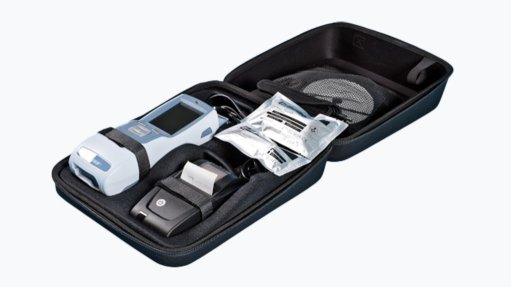World Environment Day 2019
This article has been supplied.
South Africans urged to act responsibly in recycling used oil
With World Environment Day taking place on Wednesday 5 June, protecting our ecosystems from pollution falls under the spotlight. Used lubricating oil and grease is a hazardous waste that if dumped down drains or poured onto the ground, can contaminate our water resources. The ROSE Foundation (Recycling Oil Saves The Environment) is calling on South Africans to store and recycle used oil responsibly to protect the environment.
Used oil is drained from machinery, engines, gearboxes, hydraulic systems, turbines and air compressors. It is contaminated with many hazardous organic molecules, which arise from the breakdown, decomposition and deterioration of additives and base oils during use. It is also contaminated with wear debris. Used Oil contains harmful carcinogens and compounds as well as metals such as iron, tin, zinc and copper that can easily contaminate the environment.
One litre of used oil can contaminate a million litres of water
The ROSE Foundation has been championing the responsible collection and removal of used oil for recycling for 25 years. Bubele Nyiba, the CEO of ROSE explains that due to a lack of education many South Africans who generate used oil may dispose of it improperly and illegally – pouring it down drains, throwing it out onto the ground, or even re-using it as a dust suppressant, burner fuel, or wood preservative.
“It is estimated that South Africa generates an average of 120 million litres of used lubricant oil in a year. This is a large amount of used oil that, if not collected and recycled responsibly, could make its way into our environment.”
The ROSE Foundation has been driving recycling on behalf of the lubricants industry in an effort to keep used oil out of the environment. Nyiba says they have been successful but more needs to be done: “We have recycled 1,5 billion litres of used oil over the last 25 years – that’s a massive amount that could have ended up in our ground water.”
The ROSE Foundation offer some practical tips on what to do with used oil:
Drain oil into a clean container with a tight fitting lid, such as a reusable combination drain pan/storage container.
Empty oil containers and drums make effective makeshift storage vessels for used oil, however, DO NOT use a container that previously held chemicals, such as cleaners, solvents, fuels, paint or bleach.
Always clearly label the container “Used Motor Oil.”
The ROSE Foundation can subsidize cubic-shaped 1000 litre mini tank which make maximum use of available space, hold more oil and to make things even easier, the collections require no handling of the containers. Sealed couplings are used to pump the contents straight into a tanker truck so there's no spillage or leakage.
Keep these containers in a place that can be accessed by a ROSE registered used oil collector and keep the surrounding area clear and clean. Ideally store them under cover and away from heat or sources of ignition.
Keep oil change pans free of water and ensure your storage containers are tightly sealed and covered to protect them from rain water. Oil that is contaminated with water is far more difficult to recycle.
Ensure that you do not mix used oil with other fluids such as antifreeze, transmission fluid, petrol, diesel etc. Mixing them may make them non-recyclable as well as very hazardous and flammable.
Build a bund wall around bulk used oil storage tanks so that in the event of a spill or leak, the used oil will be contained. In the event of an oil spill, contact your used oil collector.
Once your container is full you can drop it off at your nearest approved municipal garden refuse site. Otherwise, most reputable service centres have used oil storage facilities and will take your oil, as they have collectors who take it away for processing. Otherwise contact the ROSE Foundation for advise about how to dispose of your used lubricating oil.
For those South Africans who may not directly generate used oil, the ROSE Foundation asks that you question the service station where you have your car serviced to find out what they do with their used oil. “Ensure you use a reputable service centre that properly stores their used oil for removal by a registered collector.”
Nyiba says that the safe disposal of hazardous waste has become a critical issue in South Africa in order to protect our environment. “The legislation in place in South Africa means that responsible waste management is no longer a nice thing to do but a necessary thing to do.”
For more information and to find out about an accredited collector or drop-off point, contact the ROSE Foundation on (021) 448 7492 or visit www.rosefoundation.org.za.
Article Enquiry
Email Article
Save Article
Feedback
To advertise email advertising@creamermedia.co.za or click here
Press Office
Announcements
What's On
Subscribe to improve your user experience...
Option 1 (equivalent of R125 a month):
Receive a weekly copy of Creamer Media's Engineering News & Mining Weekly magazine
(print copy for those in South Africa and e-magazine for those outside of South Africa)
Receive daily email newsletters
Access to full search results
Access archive of magazine back copies
Access to Projects in Progress
Access to ONE Research Report of your choice in PDF format
Option 2 (equivalent of R375 a month):
All benefits from Option 1
PLUS
Access to Creamer Media's Research Channel Africa for ALL Research Reports, in PDF format, on various industrial and mining sectors
including Electricity; Water; Energy Transition; Hydrogen; Roads, Rail and Ports; Coal; Gold; Platinum; Battery Metals; etc.
Already a subscriber?
Forgotten your password?
Receive weekly copy of Creamer Media's Engineering News & Mining Weekly magazine (print copy for those in South Africa and e-magazine for those outside of South Africa)
➕
Recieve daily email newsletters
➕
Access to full search results
➕
Access archive of magazine back copies
➕
Access to Projects in Progress
➕
Access to ONE Research Report of your choice in PDF format
RESEARCH CHANNEL AFRICA
R4500 (equivalent of R375 a month)
SUBSCRIBEAll benefits from Option 1
➕
Access to Creamer Media's Research Channel Africa for ALL Research Reports on various industrial and mining sectors, in PDF format, including on:
Electricity
➕
Water
➕
Energy Transition
➕
Hydrogen
➕
Roads, Rail and Ports
➕
Coal
➕
Gold
➕
Platinum
➕
Battery Metals
➕
etc.
Receive all benefits from Option 1 or Option 2 delivered to numerous people at your company
➕
Multiple User names and Passwords for simultaneous log-ins
➕
Intranet integration access to all in your organisation


















